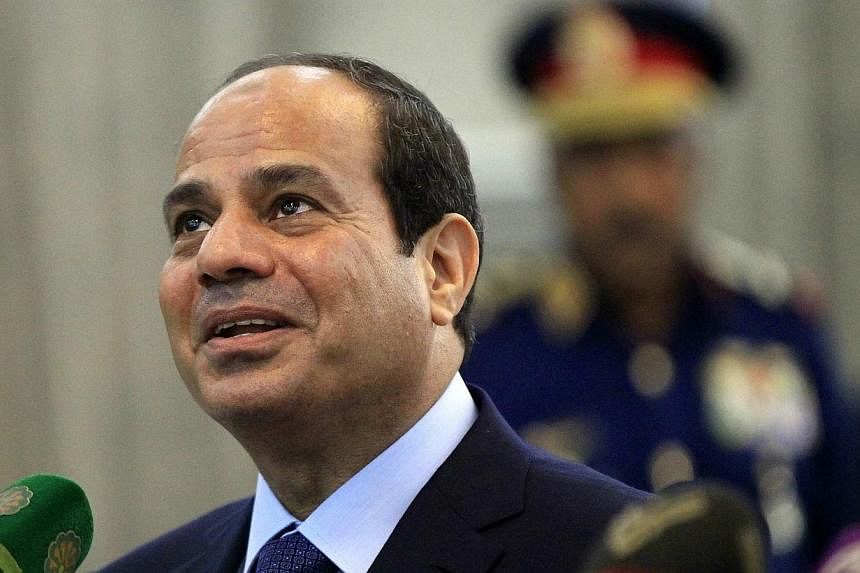CAIRO (AFP) - Egypt's President Abdel Fattah al-Sisi said on Sunday he "wished" three jailed Al-Jazeera journalists including an Australian had not been put on trial, conceding the case had been damaging, a newspaper reported.
The journalists - Australia's Peter Greste, Canadian-Egyptian Mohamed Fahmy and Egyptian national Baher Mohamed - were sentenced to between seven and 10 years in jail for allegedly defaming Egypt and aiding banned Islamists, in a ruling that sparked a global outcry and demands for a presidential pardon.
The June 23 sentencing had had a "very negative effect," Mr Sisi conceded to Egyptian editors during a roundtable, according to the mass circulation daily Al-Masry Al-Youm.
"The sentencing of several journalists had a very negative effect, and we had nothing to do with it," Mr Sisi was quoted as saying.
"I wish they were deported after their arrest, instead of being put on trial," he added, apparently referring to Greste, the sole non-Egyptian.
The verdicts, a day after US Secretary of State John Kerry visited the newly-elected Mr Sisi in a show of support, was seen as deeply embarrassing for America's top diplomat.
Washington described the sentencing of the journalists as "draconian" and called on Mr Sisi to release the journalists, while the United Nations said imprisoning them was "obscene".
Former army chief Sisi, who won elections last May, a year after overthrowing Islamist president Mohamed Mursi, had said he would not interfere with Egypt's courts, which the government says are independent.
But in the meeting with newspaper editors, Mr Sisi appeared to regret the blow back from the trial. He had previously said it was not appropriate to comment on court rulings.
The trial against the journalists of the Doha-based satellite television came against the backdrop of strained relations between Egypt and Qatar, which supports the banned Muslim Brotherhood movement of deposed president Mursi.
Mursi's ouster unleashed a deadly crackdown on Islamists and wide ranging arrests, prompting Washington to suspend some aid to Egypt.
Fahmy and Greste were arrested in December in a Cairo hotel room they used as a makeshift bureau, and police took in Mohamed later.
The three were among 20 defendants in the trial.
Nine defendants who were tried in absentia, including three foreign journalists, were sentenced to 10 years, while two defendants were acquitted.
During their trial, the prosecution presented a confusing array of evidence seemingly compiled at random from the journalists' computers.
It showed the court footage of a press conference in Kenya, where Greste was based.
The case against the journalists also included footage aired by the British Sky News belonging to Mohamed's brother, who apparently had borrowed his brother's laptop.
After the trial, Mr Sisi said he would not interfere in the judicial process.
"We have to respect judicial rulings and not comment on them," he said in a speech.
A presidential official said Mr Sisi could not pardon the reporters until the appeals process, which has not ended, has been exhausted.
But there appears to be no such legal constraint in Egyptian law.
A pardon by Mr Sisi, however, could be interpreted at home as a show of weakness and acquiescence to international pressure.
Nationalistic fervour rose to fever pitch after Mursi's overthrow, which unleashed a police crackdown that has killed more than 1,400 people, mostly Mursi supporters, in street violence and jailed thousands.
Scores of soldiers and policemen have also died in militant attacks. The government blames the now blacklisted Brotherhood, a charge the Islamist group denies.

